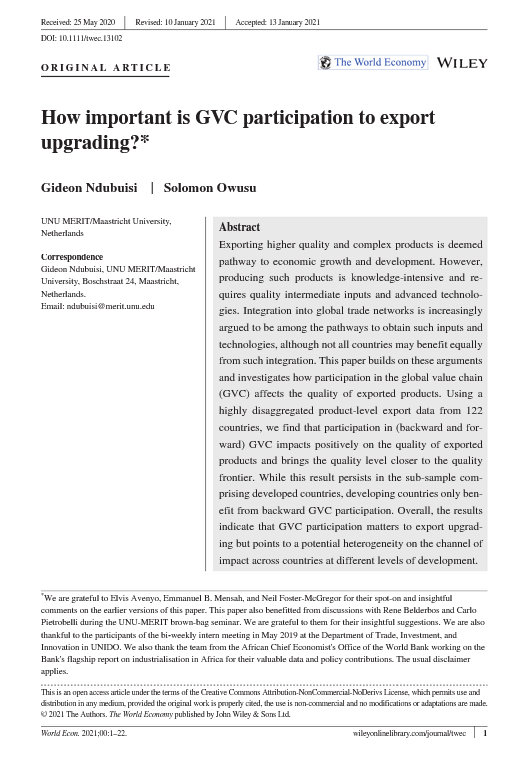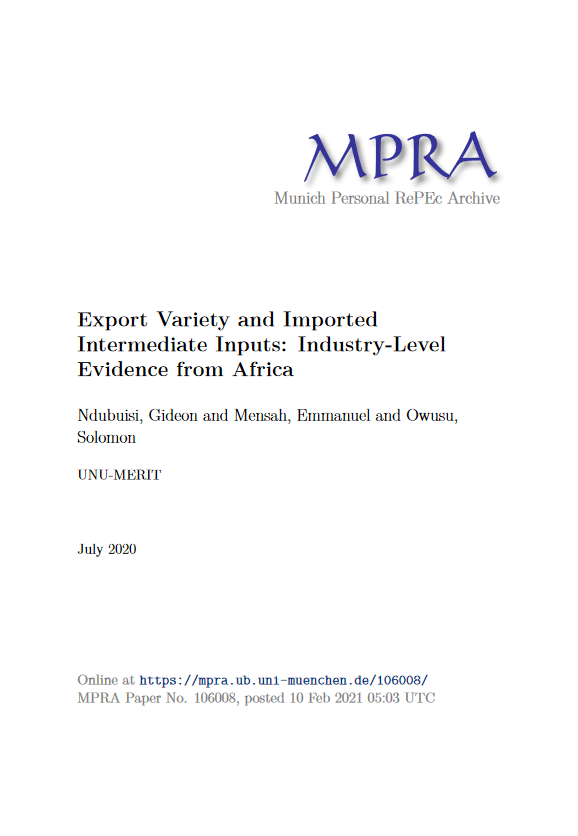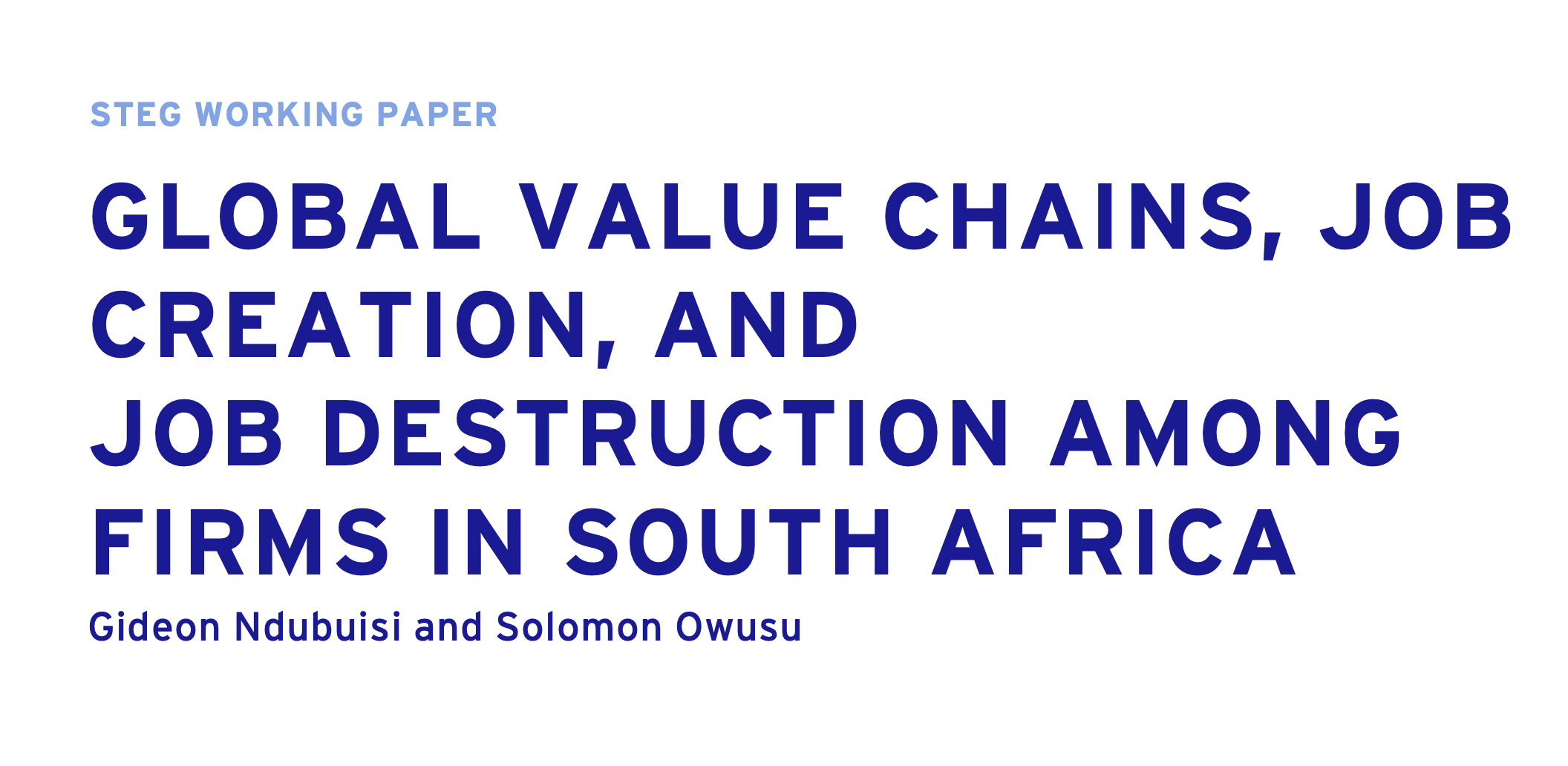︎

Solomon Owusu
Frederick S. Pardee School of Global Studies, Boston University
I am currently Assistant Professor of Global Economic Policy at the Frederick S. Pardee School of Global Studies, Boston University. Previously, I was a Postdoctoral Researcher of the Oxford Martin Programme on the Future of Development at the University of Oxford and affiliated with St. Anthony's College of the University. I am a former World Bank Africa fellow, Washington, DC and Associate Researcher at the German Development Institute (Bonn). I also serve as a Coordinator of the Complexity Economics Working Group of the Young Scholars' Initiative, Institute for New Economic Thinking (INET, New York, USA). Before joining Oxford University, I held a Research Economist position at the German Development Institute (DIE) in Germany and worked for reputable institutions such as the World Bank (Washington, DC), United Nations Industrial Development Organisation (UNIDO, Vienna), European Commission (EU-JRC, Belgium), Asian Development Bank, UNU-MERIT (The Netherlands), and Ghana Statistical Service. I received a PhD in Economics from Maastricht University/UNU-MERIT in the Netherlands, an M.A. degree (Economics) from Leuphana University Lüneburg (Germany), and Erasmus Mundus Advanced MSc. degree (Economics) from Staffordshire University (UK), University of Cantabria (Spain), and University of Brasilia (Brazil). I had my undergraduate training in Economics and Management from the University of Cape Coast, Ghana. My research interest focuses broadly on development economics in areas such as (i) economics and measurement of structural transformation, jobs and inclusive growth (ii) global value chains and trade (iii) research in services and industrialization, and (iv) issues at the intersection of technology adoption and productivity in developing countries with particular focus on countries in Africa.
MORE ABOUT SOLOMON OWUSU >Jan 1, 2021
Gideon Ndubuisi, Solomon Owusu
How important is GVC Participation to Export Upgrading
Abstract
Exporting higher‐quality and complex products are deemed pathways to economic growth and development. However, producing such products are knowledge‐intensive and require quality intermediate inputs and advanced technologies. Integration into global trade networks is increasingly argue...

Jan 1, 2020
Gideon Ndubuisi, Emmanuel Mensah and Solomon Owusu
Export Variety and Imported Intermediate Inputs: Industry-Level Evidence from Africa
Imported intermediate inputs offer access to lower-priced, higher quality, and a wider variety of inputs that can increase the possibility of producing and selling more diversified products in foreign markets. In this paper, we examine this relationship using a novel manufacturing industry-level dat...

Mar 15, 2024
Gideon Ndubuisi and Solomon Owusu
Global Value Chains, Job Creation, and Job Destruction among Firms in South Africa
Extant studies suggest that firms’ engagement in global value chain (GVC) trade is associated with productivity gains that result from the continual reallocation of resources to their most productive use. This reallocation generates benefits for transitioning workers but also incurs costs for work...

